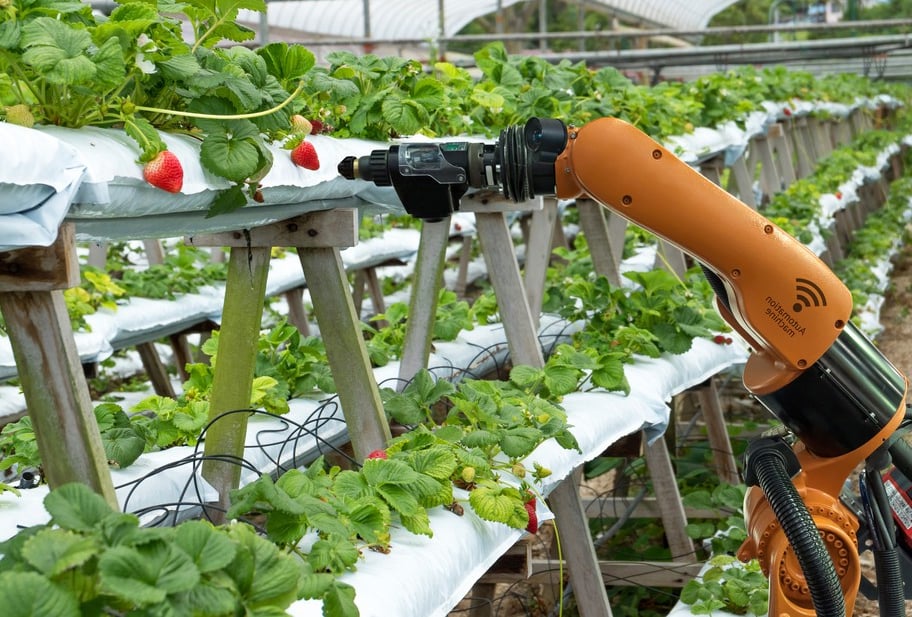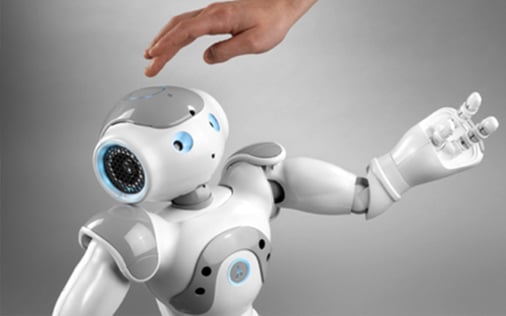By Emma Williams

Artificial intelligence seems to dominate the world. If you go back to the 1950s and compare an average day then and now you will ascertain that our present life differs a lot from the routine that people had in the 50s. Even in very random chores present life is widely robotized. Just enter your kitchen, or think about the laundry. Robots are working for us. Nevertheless, the main issue is:
Do robots work instead of us?
The advance in technology and the creation of robots has lots of advantages, and, of course, there are some disadvantages as well. Let’s mention some of them.
Advantages
- Robots enhance creative tasks - Artificial intelligence allows robots to carry out repetitive tasks without human intervention and for people to engage in creative work.
- Robots reduce human error - Robots are very precise. In the industry or in healthcare robots’ precision is essential and lots of new advancements have been reached after artificial intelligence entered the medical sector. These robots are called medical robots.
- Robots also reduce data analysis times and improve decision making - It is impossible for the human brain to fulfill the amount of data analysis in real-time as robots do it. Massive data can be processed and analyzed in the business context.
- Education - Artificial intelligence is already used in education. Nearly all exam programs or college admission projects have computer-based papers. Lots of official governmental tests are checked by robots. In 2017 at an admission consultants forum some robots were presented that could be controlled by other robots and so on. There is a doubt if some day admissions consulting for MBA or other degrees will also be completely robotized or not.
Disadvantages
- High costs - It is really expensive to design and produce a robot. Considering that it takes a long time of investigation, inversion, and time some types of robots do not result in profit.
- Project implementation deadlines - this point could be related to the previous one, as it seems to be a logical continuation of high cost. The cost is high both economically and temporarily.
Robots are changing not only the business but also the world. Are they changing the business for the better?
They do! Robots are already applied in different business sectors. Research results show that this implication caused significant improvements in the production system. Robots are very productive. Thousands of companies struggle for productivity. Many entrepreneurs decide to bet on robots. To tell the truth, by the usage of robots their companies gain a lot in security.
Robots are able to do any kind of task, they do not get tired and do not argue. They are never stressed or depressed, they are always concentrated and nothing can distract them. Robots are also adaptable.
At the point of view of the business and entrepreneur robots reduce production costs considerably. Robots are precise and do not disturb you with questions.
Nevertheless, there is also a risk that people are substituted by robots. Many jobs held by people are disappearing. According to a report published by the Organization for Economic Cooperation and Development (OECD), 14% of the jobs that exist today could disappear due to robots, while 32% of the jobs will be modified by the use of these technologies.
Are we talking about numbers when we consider applying more and more robots in business or are we talking about the common good? On the one hand, if robots do repetitive tasks at work there is more time left for human interaction, discussion, and new project planification. On the other hand, if there is a need for only one human to manipulate robots in the workspace then this worker will probably feel pulled apart with no communication opportunities during work time.
It is an emergency to include more robots in the business. Here are some tips on how to balance this integration.
- Form your employees, whose jobs will be substituted by a robot for a customer service department. This is an area where robots are not able to have as much control as humans. Till now all the efforts to make robots understand human emotions have failed.
- Even if you apply artificial intelligence in the business, appreciate the effort, contributions, and achievements of your employees.
- Provide IT training for your staff. People feel excluded if they do not understand what and how to use it. If these people have good training and preparation you will not feel guilty even if they are pulled out by robots, because there are other employment opportunities for which they will be adapted and qualified.
- If it is possible, use robots to complement the job and not substitute human work.
It
is always a challenge and very difficult to find the optimally correct implication of artificial intelligence in the business without having to fire some employees. Thus while answering the question if robots change business for the better think about from which point of view you are dealing with the issue.
As it is said ROBOTS ARE HERE TO STAY, so let’s learn to coexist and not struggle with them.
Discover more about Business robots with RobotLAB!

Author Bio
 Emma Williams is a part of the Content and Marketing team at Admissionado. She contributes articles about college and MBA admissions, student life, and everything in between. She enjoys diving into new aspects of life, learning as much as possible from the business world, marketing, and branding. She likes sharing her thoughts and ideas with the world and helping people to get easier access to the secrets of the world.
Emma Williams is a part of the Content and Marketing team at Admissionado. She contributes articles about college and MBA admissions, student life, and everything in between. She enjoys diving into new aspects of life, learning as much as possible from the business world, marketing, and branding. She likes sharing her thoughts and ideas with the world and helping people to get easier access to the secrets of the world.
